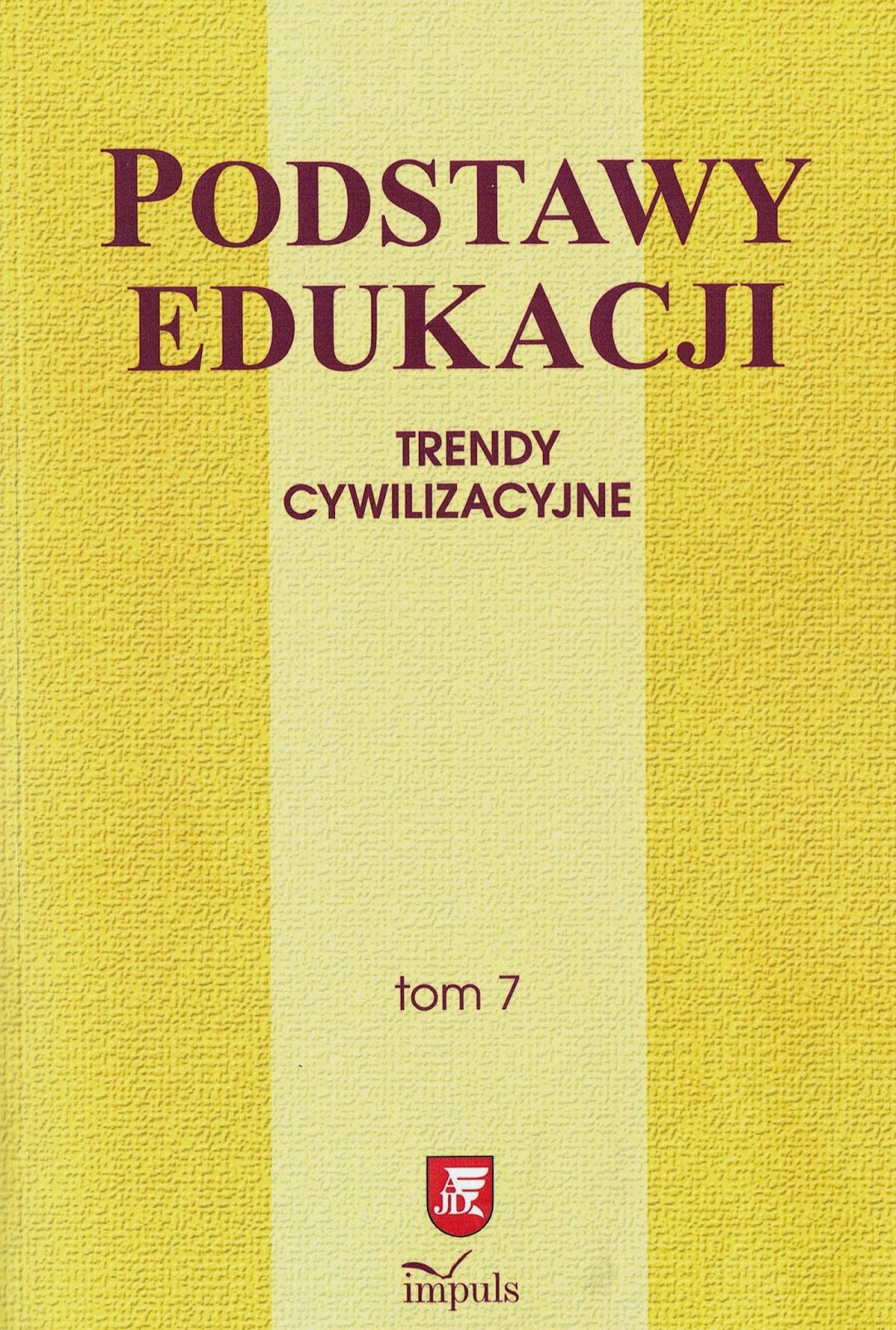Abstrakt
Zasadniczym przedmiotem niniejszego artykułu jest transpozycja kategorii „inności” wywiedzionej z filozofi i człowieka J. Tischnera na grunt edukacji oraz wykorzystanie jej dla przedstawienia relacji między nauczycielem a uczniem. Autor tekstu, osadzając swe refleksje na inspirującej myśli twórcy Sporu o istnienie człowieka oraz tradycji dydaktycznej, opisuje rolę ucznia i nauczyciela w procesie edukacyjnym – wskazuje na bariery utrudniające możliwości dialogu, ale jednocześnie na płaszczyzny wspólne, pozwalające na szukanie porozumienia obu podmiotów szkolnej komunikacji. Fundamentem owego porozumienia jest sfera aksjologii otwarta na odkrywanie wartości Innego na drodze wspólnego dążenia do prawdy o świecie.
Bibliografia
Buber, M. (1992). Ja i Ty. Wybór pism filozoficznych. J. Doktór (tłum.) Warszawa.
Jędrychowska, M. (1994). Lektura i kultura. Kształtowanie świadomości kulturalnej uczniów szkoły podstawowej. Szkice i artykuły metodyczne dla nauczycieli języka polskiego. Warszawa – Kraków.
Kłakówna, Z.A. (2003). Przymus i wolność. Projektowanie procesu kształcenia kulturowej kompetencji. Kraków.
Książek-Szczepanikowa, A. (1996). Ekranowy czytelnik – wyzwanie dla polonisty. Szczecin.
Mead, M. (2000). Kultura i tożsamość. Studium dystansu między pokoleniowego. J. Hołówka (tłum.). Warszawa.
Mikoś, E. (2001). O dialogu edukacyjnym. W: Z. Uryga, Z. Budrewicz (red.). Drogi i ścieżki polonistyki gimnazjalnej. Kraków.
Sporek, P. (2010). Koniec ekranowego czytelnika? Polonistyka, 11.
Sporek, P. (2011). Czy dialog z uczniem jest możliwy? O technologii informacyjnej – refleksja antropocentryczna. Forum Nauczycieli, 2.
Szary, S. (2005). Człowiek – podmiot dramatu. Antropologiczne aspekty filozofii dramatu Józefa Tischnera. Kęty.
Tischner, J. (2000). Myślenie według wartości. Kraków.
Tischner, J. (2001a). Filozofia dramatu. Kraków.
Tischner, J. (2001b). Spór o istnienie człowieka. Kraków.
OŚWIADCZENIE AUTORA:
Mam świadomość, że czasopismo jest wydawane na licencji Creative Commons - Uznanie autorstwa (https://creativecommons.org/licenses/by/4.0/legalcode).
Przesyłając artykuł wyrażam zgodę na jego udostępnienie na tej licencji.
